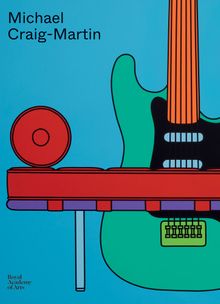| |||||||||||||||||||||||||
ARTIST MONOGRAPHS
|
|
in stock $49.95 Free Shipping UPS GROUND IN THE CONTINENTAL U.S. |
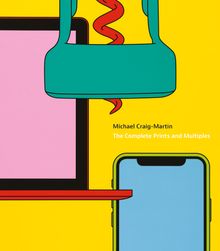 Michael Craig-Martin: The Complete Prints and Multiples
Michael Craig-Martin: The Complete Prints and Multiples
Published by Art / Books.
Text by Michael Bracewell.
Coinciding with a retrospective exhibition at the Royal Academy, this catalogue raisonné enumerates all of Michael Craig-Martin's (born 1941) printed work. Screenprints, letterpress and computer works all present his signature style of everyday objects drawn in outline and rendered in intense saturated colors.
PUBLISHER
Art / Books
BOOK FORMAT
Hardcover, 10 x 11.5 in. / 304 pgs / 350 color.
PUBLISHING STATUS
Pub Date 11/5/2024
Active
DISTRIBUTION
D.A.P. Exclusive
Catalog: SPRING 2025 p. 32
PRODUCT DETAILS
ISBN 9781908970619 TRADE
List Price: $75.00 CAD $113.00
AVAILABILITY
In stock
in stock $75.00 Free Shipping UPS GROUND IN THE CONTINENTAL U.S. |
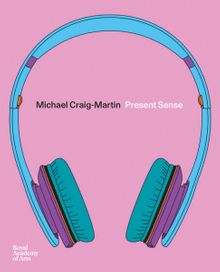 Michael Craig-Martin: Present Sense
Michael Craig-Martin: Present Sense
Published by Royal Academy of Arts.
Text by Ben Luke. Interview by Tim Marlow.
Upon returning to the UK after studying in the US, the Irish-born artist Michael Craig-Martin (born 1941) became a key figure in British conceptual art and an influential educator, linked in particular to the generation of Young British Artists, including Damien Hirst and Gary Hume. Craig-Martin's works transform recognizable objects—such as sneakers, headphones, watches and, most recently, modernist buildings—with bold color and simplified lines. He cites his "rationalism" as the root of his art. Craig-Martin is the latest subject of a three-year curatorial partnership between the Windsor Gallery, Florida, and the Royal Academy of Arts, London, initiated to celebrate the latter's 250th anniversary. This lively book reproduces a selection of his paintings, prints and sculptures, with an essay by the art critic Ben Luke and an exclusive interview between Tim Marlow and the artist.
PUBLISHER
Royal Academy of Arts
BOOK FORMAT
Paperback, 9.75 x 12 in. / 96 pgs / 45 color.
PUBLISHING STATUS
Pub Date 3/19/2019
Active
DISTRIBUTION
D.A.P. Exclusive
Catalog: SPRING 2019 p. 127
PRODUCT DETAILS
ISBN 9781912520152 TRADE
List Price: $30.00 CAD $45.00
AVAILABILITY
Out of stock
STATUS: Out of stock Temporarily out of stock pending additional inventory. |
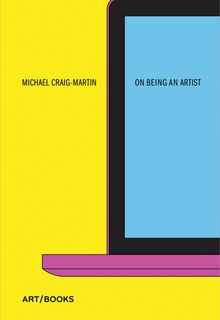 On Being an Artist
On Being an Artist
Published by Art / Books.
By Michael Craig-Martin.
Few living artists can claim to have had the influence of Michael Craig-Martin (born 1941). Celebrated globally for his distinctive art, with numerous retrospectives and honors to his name, he has helped nurture generations of younger artists.
In On Being an Artist, now published in paperback, Craig-Martin reflects with wit and candor on the people, ideas and events that have shaped his professional life. In a series of short, entertaining episodes, he recounts his time studying under Josef Albers at Yale University School of Art alongside Chuck Close, Richard Serra and others; his memories of meeting personal heroes such as Andy Warhol, Jasper Johns and John Cage; and his surreal experience of staking out Christine Keeler at the height of the Profumo scandal.
He recalls, too, his first tentative steps as an artist and emergence as a key figure of early conceptual art, and looks back on his achievements as a teacher at Goldsmiths, where he nurtured two generations of students, among them Damien Hirst and Sarah Lucas, earning himself the sobriquet “the godfather of the YBAs.”
Craig-Martin tackles controversial issues such as the fashionability of contemporary art, the enduring status of painting, the relevance of life drawing and practical skills, the qualities of art schools, the role of commercial dealers and the judgment of what is good and bad in art.
More than the life of one of the most creative minds of our age, On Being an Artist provides lesson after valuable lesson to anyone wishing to know what it means and what it takes to be an artist today.
"An erudite, insightful and hugely readable collection." –It's Nice That
"A gloriously illustrated credo-cum-memoir." –artsjournal.com
PUBLISHER
Art / Books
BOOK FORMAT
Paperback, 6 x 9 in. / 304 pgs / 60 color / 33 bw.
PUBLISHING STATUS
Pub Date 8/20/2019
Active
DISTRIBUTION
D.A.P. Exclusive
Catalog: FALL 2019 p. 96
PRODUCT DETAILS
ISBN 9781908970503 TRADE
List Price: $20.00 CAD $29.95
AVAILABILITY
In stock
in stock $20.00 Free Shipping UPS GROUND IN THE CONTINENTAL U.S. |
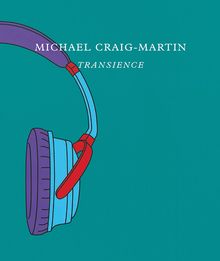 Michael Craig-Martin: Transience
Michael Craig-Martin: Transience
Published by Koenig Books.
Foreword by Julia Peyton-Jones, Hans Ulrich Obrist. Text by Marco Livingstone, Alice Rawsthorn.
PUBLISHER
Koenig Books
BOOK FORMAT
Paperback, 7.5 x 8.75 in. / 120 pgs / 65 color.
PUBLISHING STATUS
Pub Date 6/14/2016
Active
DISTRIBUTION
D.A.P. Exclusive
Catalog: FALL 2016 p. 155
PRODUCT DETAILS
ISBN 9783863358693 FLAT40
List Price: $30.00 CAD $40.00
AVAILABILITY
In stock
in stock $30.00 Free Shipping UPS GROUND IN THE CONTINENTAL U.S. |
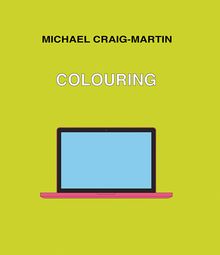 Michael Craig-Martin: Colouring
Michael Craig-Martin: Colouring
Published by Koenig Books.
PUBLISHER
Koenig Books
BOOK FORMAT
Paperback, 11 x 11 in. / 36 pgs / 3 color / 18 bw.
PUBLISHING STATUS
Pub Date 6/14/2016
Out of stock indefinitely
DISTRIBUTION
D.A.P. Exclusive
Catalog: FALL 2016 p. 155
PRODUCT DETAILS
ISBN 9783863358730 FLAT40
List Price: $20.00 CAD $27.95
AVAILABILITY
Not available
STATUS: Out of stock indefinitely. |
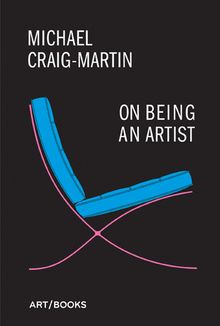 On Being an Artist
On Being an Artist
Published by Art / Books.
By Michael Craig-Martin.
PUBLISHER
Art / Books
BOOK FORMAT
Hardcover, 6 x 9 in. / 304 pgs / 40 color / 20 bw.
PUBLISHING STATUS
Pub Date 4/28/2015
Out of stock indefinitely
DISTRIBUTION
D.A.P. Exclusive
Catalog: SPRING 2015 p. 92
PRODUCT DETAILS
ISBN 9781908970183 TRADE
List Price: $35.00 CAD $47.50
AVAILABILITY
Not available
STATUS: Out of stock indefinitely. |
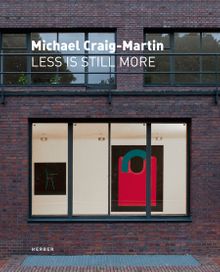 Michael Craig-Martin: Less Is Still More
Michael Craig-Martin: Less Is Still More
Published by Kerber.
Edited by Martin Hentschel. Text by Martin Hentschel, Michael Craig-Martin.
PUBLISHER
Kerber
BOOK FORMAT
Hardcover, 9.5 x 11.75 in. / 152 pgs / 49 color / 3 bw.
PUBLISHING STATUS
Pub Date 3/31/2014
Out of print
DISTRIBUTION
D.A.P. Exclusive
Catalog: SPRING 2014 p. 177
PRODUCT DETAILS
ISBN 9783866788800 FLAT40
List Price: $55.00 CAD $72.50
AVAILABILITY
Not available
STATUS: Out of print | 00/00/00 For assistance locating a copy, please see our list of recommended out of print specialists |
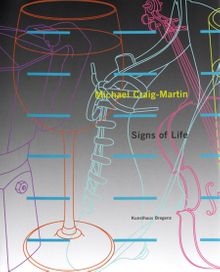 Michael Craig-Martin: Signs of Life
Michael Craig-Martin: Signs of Life
Published by Kunsthaus Bregenz.
Edited by Eckhard Schneider. Essays by Liam Gillick, Eckhard Schneider and Edgar Schmitz.
PUBLISHER
Kunsthaus Bregenz
BOOK FORMAT
Hardcover, 9.5 x 11.75 in. / 128 pgs / 50 color.
PUBLISHING STATUS
Pub Date 10/15/2006
Out of print
DISTRIBUTION
D.A.P. Exclusive
Catalog: FALL 2006 p. 113
PRODUCT DETAILS
ISBN 9783865600851 TRADE
List Price: $65.00 CAD $75.00
AVAILABILITY
Not available
STATUS: Out of print | 00/00/00 For assistance locating a copy, please see our list of recommended out of print specialists |
